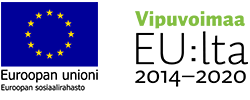Renewing Dialogues in Social and Health Care – Leadership, Well-being and Productivity (The SoteDialogit project) 2019-2022
Renewing Dialogues in Social and Health Care – Leadership, Well-being and Productivity project was nationwide and was implemented in nine regions. The project’s pilot organisations represented municipal and private organisations, work communities or teams of services for the elderly, child welfare, services for children, youth and families, and special education.
The entire personnel, who worked in various management and supervisory positions, areas of responsibility and professional groups, participated as the pilot organisations of the project. The coordinator was the Tampere University, Work Research Center and the sub-implementers were the University of Eastern Finland and Lapland and Seinäjoki Universities of Applied Sciences. The most important partners were Talentia Union of Professional Social Workers, The Finnish Union of Practical Nurses, Kunteko, and Keva.
The common theoretical basis of the project was the framework of dialogic management, organisation, and development. (Syvänen, Tikkamäki, Loppela, Tappura, Kasvio, Toikko 2015). The development method was research-assisted, cooperative and dialogical. Renewal were promoted using methods that activate creativity and innovation. Each implementer had their own pilots in the development and the phases and methods of development varied by implementer.
The general and joint development goals of the project were
- improving well-being at work
- development of management, especially dialogic leadership and management skills of well-being at work and occupational safety, and
- understanding meta-skills dialogue and reflection, practicing and developing them.
In addition to the general development goals, the development needs and goals were focused on the following eight themes related to the individual, team and work community levels or the organisational areas of responsibility and expertise of management:
- basic and core tasks and prioritisation, customer focus;
- the prerequisites, structures and physical, social and mental spaces for dialogue (information flow and communication, opportunities for influence, influence and participation, cooperation, interaction and dialogic mode of operation, meetings);
- supporting control of work (reducing workload and pressure, familiarisation, balance of skills and work demands);
- a dialogic and participatory leadership style;
- responsibilities and division of labor;
- job features, work and service processes, customer focus;
- organisation and new ways of organising, most commonly teams and their self- and community-directedness;
- the rules or principles of the game (drafting, evaluation, monitoring), and
resources and working tools.
In the pilots of various implementers, the development needs and goals were generally met with success, although the COVID-19 pandemic that started in the middle of the project. Pandemic brought many problems and challenges to the development work. With the help of the practices built into the pilots, the management of work well-being and renewal, as well as continuous development activities, became a more natural part of the organisation’s structures and everyday work processes than before. This is especially supported by advanced leadership style and the spaces for dialogue, meetings and meeting practices, the rules and principles of the game, and the development of work and service processes.
In the project, two evaluations were carried out in 2020 and 2021, in which the supervisors of the development work of different implementers and groups consisting of representatives of the management and employees of the pilot organisations evaluated the project from different perspectives. In addition, a well-being survey was carried out at the beginning and at the end of the project.
Positive results and effects
According to the evaluations, the project offered the pilots’ personnel a development environment that enabled renewal and the increase and strengthening of the skills needed in various changes. In addition, it was felt that knowledge and know-how for organising in various change processes was gained. It was also felt that self-knowledge increased, and more information and know-how were shared than before. Thanks, were also given to the dialogic and participatory development methods and tools. According to the employees’ and management’s self-assessments, both groups’ experiences of the project and the most important themes of its development work, the most central development needs and the best results and effects, as well as the obstacles to development, were very similar.
Despite the extraordinary and unpredictable situation caused by the pandemic, the final survey showed a positive change. Development took place at the level of individual, team and the entire work community, as well as management. The effectiveness and good results of the project were focused especially on team activities and dialogue and reflection meta skills. In the case of management, development work was felt to have had the best impact on leadership, relations between employees and managers, workplace development, as well as information flow and communication.
The best and the most extensive change and development took place at the team level. According to the survey, the effectiveness and success of the development work can be seen in the increase in satisfaction with team activities. It was seen as a more consistent view of the basic task, a better commitment to a common goal, and the carrying of common responsibilities. They were also more satisfied with the mutual interaction of the team members, the independent planning of the team’s activities and the clarity of the division of responsibilities. Mutual trust, appreciation and support also increased.
According to the evaluations, the development work was felt to have had a positive effect on the drafting of the joint work communities, the recording and implementation of agreed matters, and the atmosphere. The structures and peer meetings created to support management were also perceived as positive. Also, the prerequisites for dialogic interaction and cooperation, information flow and communication, meeting and meeting practices, raising different issues (threshold lowered), and participation and influencing were felt to have increased and improved.
In the pilots, there was a strengthening transition towards a dialogical organisation and culture. According to the survey, positive development took place in many important features of the dialogic and participative leadership style. They include fairness and equity in management, presence and reachability, management skills and occupational well-being. There was only a slight weakening in the changed leadership style characteristics, namely listening, enabling individual flexibility and tasks, support and helping, and appreciation. These are the features of leadership style that that remote management may have had a negative impact on. These features require immediate interaction, implementing them remotely and through technology is difficult.
With the pilots’ increased dialogue, dialogic way of working and cooperation, more customer-oriented services were achieved, the ways of doing work became clearer, and the experiences of the sense of work improved even more. Dialogue was practiced with different methods and tools, and it was felt that dialogue increased openness and a positive atmosphere. Dialogue also increased between employees and supervisors. Making things visible, openness and concretisation in meetings was felt to be important. Development methods gave space for open and equal discussion in work communities or teams, which increased the importance of development opportunities, increasing the motivation to participate in joint development. Openness and trust increased.
Obstacles
In evaluations and the final survey, the obstacles to the development work were brought up as the urgency and excessive workload, turnover and shortage of personnel, different attitudes of employees towards development, lack of time, and lack of commitment and presence of management and supervisors, as well as turnover. In the spring of 2020, the Covid-19 pandemic interrupted the dialogical and face-to-face development project in the middle, for half a year. During the period in question, new development implementation and working methods were devised through remote connections and technology. Due to the impact of the pandemic, the progress of the project slowed down, remote meetings were perceived as less
dialogical, the workload increased, and social interaction decreased to various restrictions. In some work communities, however, remote working tools were perceived to be functional and enable development work, even though both the project implementers and the pilot workplaces moved to long-term remote work. The effect of Covid-19 pandemic can be seen in the increase of the ethical and mental load of work and various work
pressures and workload. (read more Syvänen & Loppela 2022; 2021)
The key results and outputs are presented on the project’s website. The website also contains following publications
- Scientific article collection: Dialogic development of work communities and leadership. Factors of well-being, productivity and renewal (Syvänen, Loppela & Kolehmainen (eds.) 2022) and
- Development guide: Dialogic model of operation (Piippo, Syvänen & Kolehmainen (eds.) 2022).
Development guide for the work organisations and teams. The project also worked on four infographics about dialogic leadership, organisation and development, as well as videos that present a dialogic way of working and acting, as well as participatory development methods and tools. The most important results and outputs of the project, i.e., the pearls of the development work, have also been summarised on the social and health care pearls project website sotehelmet.fi, where you can also find a virtual book: Social and health care pearls supporting the management and development of the new Finnish welfare areas (Syvänen & Toivonen (eds.) 2022; pdf).

Projektet SoteDialogit (2019-2022) har som mål att få till stånd omfattande resultat och innovation i vardagen samt förbättra arbetslivets kvalitet
SoteDialogit-projektet avslutades i december 2022.
Målgrupper och områden
Projektet SoteDialogit var riksomfattande och genomfördaded i Södra Österbotten, Kajanaland, Egentliga Tavastland, Kymmenedalen, Lappland, Birkaland, Norra Savolax, Norra Karelen och Nyland. Utvecklingen gjordes tillsammans med anställda inom äldreomsorgen och barnskyddet. Varje aktör hade egna social- och hälsovårdsorganisationer som sina ansvarsobjekt i utvecklingsarbetet.
Mål och uppgifter
I projektet SoteDialogit
- utvecklade man kompetensen hos de anställda inom social- och hälsovården, deras strukturer, arbete, tjänster, hur tjänster produceras och servicekulturen både digitalt och kooperativt
- i utvecklingen har metakompetenser som dialog, reflektion, förnyelseförmåga och organisationsförmåga samt en ledarstil som främjar välbefinnande i arbetet stötts, finslipats och förstärkts.
- har konfirmerats de deltagande aktörernas och chefernas färdigheter utöver yrket och metakompetens, vilka är dialogbaserade handlingssätt, reflekterande arbetsgrepp, förändrings- och förnyelseförmåga samt digitalisering
- projektet har stött specialisters och arbetsgemenskapers dialogbaserade handlingssätt och verksamhetskultur, och har gjort det möjligt en dialogbaserad, uppskattande och lika behandling av klienter/patienter
- har ökat klienternas och deras anhörigas egenmakt, delaktighet i sin egen vård och ger dem således ett större ansvar för att främja sitt välbefinnande och sin hälsa genom att utveckla ledarskapet
- har förebyggt psykosociala risker genom utveckling av arbets- och verksamhetsmodeller.
Utvecklingsmetod
Utvecklingsmetoden har varit forskningsstödd, kooperativ och dialogbaserad. Organisatoriskt lärande och förnyelse har främjats genom att tillämpa inkluderande och dialogbaserade metoder och verktyg som uppmuntrar kreativitet och innovation. Utvecklingsarbete har bedrivits i olika delprojekt, vars genomförandemetoder och metoder har varierat beroende på utförare.
Man söker svar på följande frågor
- Vilka innovationer behövdes enligt projektdeltagarna på jobbet, i teamet och på arbetsplatsen?
- Hur ville du förnya och förändra kompetens och ledning? Vad var värt att behålla?
- Hur utvecklades ledarskapsförmågan och kompetensutvecklingen när man strävade efter bättre välbefinnande i arbetet?
- Vilket stöd från arbetsgivare, ledning och arbetsledare hjälpte de anställda att överleva och skaffa sig färdigheter som hade en positiv effekt på arbetsförmåga, välbefinnande och arbetskvalitet?
- Vilken typ av stöd behövde ledning och arbetsledare för sitt eget arbete?
Utvecklingsarbetets effekter
- Dialogbaserade och reflekterande möten anordnades mellan olika enheter och aktörer i en multiprofessionell verksamhetsmiljö.
- Den kompetens som behövs i social- och hälsovårdens arbete och i arbetsgemenskaper stärktes, liksom hanteringen av kompetens, förnyelse och välbefinnande i arbetet.
- Möjligheter skapades att förnya, öka och stärka den kompetens som behövs i förändringarna.
- Arbetsplatsers och teams olika förändringsprocesser och de meta-färdigheter som behövs i dem stöddes.
- Dialog och samarbete mellan experter, olika branscher och organisationer ökade och fördjupades, vilket säkerställde kundnära tjänster, förtydligade arbetssätt och ökade meningen med arbetet.
- Att hantera välbefinnande i arbetet och förnyelse och kontinuerlig utveckling baserad på bästa praxis blev en naturlig och vardaglig del av arbetsgemenskapernas strukturer och arbetsprocesser.
- Utvecklingen av medarbetarnas arbetstrivsel och arbetsgemenskapskompetens stöddes, vilket förbättrade arbetsproduktiviteten.
- Förändringarna och utvecklingen utnyttjade arbetsplatsens, teamens och individernas kompetens och resurser.
- Utvecklingsmetoder baserade på samarbete och dialog lärde sig och blev vanligare.
- De arbetsplatser som deltog i projektet lärde sig av varandra, delade erfarenheter.
- Resultaten kan användas i chefs- och handledarutbildningar, arbetshälsoutbildningar och i utvecklingen av utbildningar som leder till examina inom social- och hälsovård på olika nivåer.
Längd och finansiering
Projektet genomfördes 2019–2021 och finansierades av Europeiska socialfonden (som samordnare SHM), 1,7 M€. Projektet ingår i åtgärdslinje 3 Sysselsättning och arbetskraftens rörlighet och dess särskilda mål 7.1 Förbättring av produktivitet och arbetshälsa.
Sotehelmet till stöd för välfärdsområdenas ledning och utveckling
SoteDialogit-projektet var också ett av sex utvecklingsprojekt inom Europeiska socialfonden (ESF), vars utvecklingsresultat och resultat samlades in på webbplatsen sotehelmet.fi. Resultaten av SoteDialogit-projektet och andra projekt finns att läsa på webbplatsen och i publikationerna (Syvänen & Toivonen (eds.) 2022, pdf).
Strategisk ledning av personalresurser för främjande av arbetshälsa, produktivitet och innovativitet
Sotehelmet-webbplatsens struktur och tematiska uppbyggnad utgår från både strategisk personalledning på olika organisationsnivåer och ledarnas och förpersonernas organisatoriska ansvars- och kompetensområden. Ansvarsfullt och kompetent strategiskt personalledarskap är av central betydelse för hela organisationen.
Enligt aktuell forskning om ledarskap kännetecknas ett gott ledarskap av förmåga till strategiskt tänkande, samarbete, dialog, inkludering och delaktighet, stöd och hjälp, individuellt bemötande samt respektfullt, utvecklingsorienterat och tjänande ledarskap. Strategisk personalledning förutsätter att ansvariga ledare och förpersoner på olika nivåer i organisationen har tillgång till kunnande och verktyg för strategiskt personalledarskap.
Sotehelmet-temahelheter
De temahelheter som presenteras på Sotehelmet-webbplatsen har sitt ursprung i det samarbete och utvecklingsarbete, samt de ämnesområden, innehåll och metoder, som förverkligats i de olika Sotehelmet-projekten. De mest centrala resultaten och produkterna från projekten har döpts till Sotehelmet-pärlor (fi. helmet), vilka identifierades och formades under en gemensam arbetsprocess. Den semiotiska idén bakom Sotehelmet är att använda pärlfisket som en liknelse, där ett omfattande utvecklingsarbete resulterar i unika och värdefulla pärlor, som tillsammans bildar ett pärlband. De mest centrala och viktiga pärlorna är samlade på webbplatsen under sex temahelheter med tillhörande case-exempel. Alla case-exempel hittas också under fliken case-exempel ovan, var de finns uppräknade i alfabetisk ordning.
Sotehelmet-temahelheter:
- Strategisk ledning av arbetsförmåga Strateginen työkykyjohtaminen -projektet
- Förändringsledarskap i förändring Soteliiderit-projektet
- Dialogiskhet i organisationen Sotedialogit-projektet
- Utveckling av arbetshälsa genom delaktighet Hyvinvoiva hoiva – Välmående omsorg -projektet
- Ledarskap och bemötande på distans Etänä enemmän -projektet
- Delaktighet och demokrati ASKO-projektet
Temahelheterna strategisk ledning av arbetsförmåga och förändringsledarskap i förändring behandlar mer generellt organisationsledning, men omfattar även dimensioner av kunskapsbaserat ledarskap. I helheterna dialogiskhet i organisationen, utveckling av arbetshälsa genom delaktighet samt ledarskap och bemötande på distans är tyngdpunkten i huvudsak på ledarskap, organisering, verksamhet och arbetssätt på arbetsplatser och i arbetsgemenskaper och enskilda team. Av stor betydelse är den närmaste chefens ledarskap, som även kan förverkligas på distans. Temahelheten delaktighet och demokrati lyfter fram betydelsen av kunders delaktighet och deltagande i utvecklingen av arbete och olika tjänster och dess betydelse för ledarskap.
Vem är webbplatsen riktad till?
Sotehelmet-webbplatsen riktar sig främst till välfärdsområdenas ledare, chefer och förpersoner samt representanter för olika yrkesgrupper. Webbplatsens hela innehåll och enskilda pärlor kan tillämpas i samband med utveckling och förändring av organisation, ledarskap, verksamhet, arbetssätt och tjänster.
Sotehelmet-resultaten, kunskapen och utvecklingsidéerna kan användas även inom andra sektorer än enbart social- och hälsovårdssektorn, eftersom innehållet beskriver faktorer som främjar utveckling och förnyelse av arbetsplatser generellt.
Sotehelmet-webbplatsen erbjuder en stor mängd teoretisk och praktisk kunskap, tips, utvecklingsmetoder och verktyg. Med hjälp av dessa är det möjligt att få en bredare och djupare förståelse av hur man samtidigt kan utveckla resultaten, produktiviteten, arbetslivskvaliteten och innovativiteten inom välfärdsområden, enskilda organisationer, arbetsplatser och team eller i arbetet överlag.


